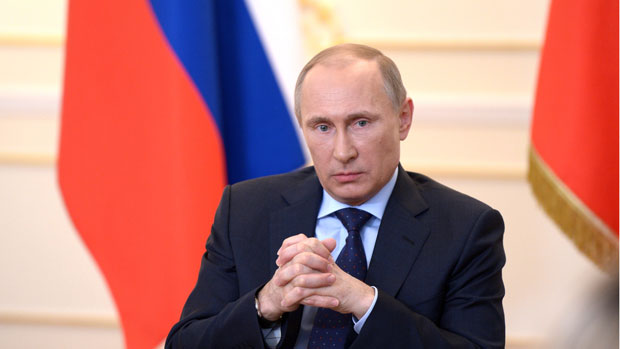Why has Putin agreed to 'ceasefire' with Ukraine?
Presidents Putin and Poroshenko agree to steps towards a truce as US and EU sanctions bite in Russia

A free daily email with the biggest news stories of the day – and the best features from TheWeek.com
You are now subscribed
Your newsletter sign-up was successful
The statement has now been revised to say that Russia has only agreed to be part of the "ceasefire process", as it denies accusations that it is directly involved in the conflict. It goes on to say that the two leaders "reached a mutual understanding on steps leading to peace".
A spokesperson for the Russian president told the BBC "Putin and Poroshenko did not agree a ceasefire in Ukraine because Russia is not party to the conflict; they only discussed how to settle the conflict".
However, the rebels have said they will not observe a ceasefire until Ukrainian forces leave the Donbass region.
The Week
Escape your echo chamber. Get the facts behind the news, plus analysis from multiple perspectives.

Sign up for The Week's Free Newsletters
From our morning news briefing to a weekly Good News Newsletter, get the best of The Week delivered directly to your inbox.
From our morning news briefing to a weekly Good News Newsletter, get the best of The Week delivered directly to your inbox.
The statement from the Kremlin has left regional analysts wondering what prompted Putin to agree on a peace process with Ukraine after weeks of escalating violence in the region. Some have linked his decision to the ultimatum given by EU leaders last week.
Brussels had threatened Russia with a fresh round of strict sanctions unless rebels exited Eastern Ukraine, The Guardian reports. The new measures would tighten previous sanctions on the country's financial, energy, and defence sectors.
Previous punitive measures from the UK and US have "accelerated an economic downturn in Russia", according to Reuters. Its currency has dropped by 25pc over the last 18 months to an all-time low against the dollar. The country is also facing sharp price hikes and shortages of certain food items.
"People are very scared," one Moscow banker told the Daily Telegraph. "There is talk of Iran-style sanctions against Russia and, if we go down that route, we may not have much of a financial sector left."
A free daily email with the biggest news stories of the day – and the best features from TheWeek.com
It is yet unclear whether the EU will revise its plans for further sanctions in light of this latest development.